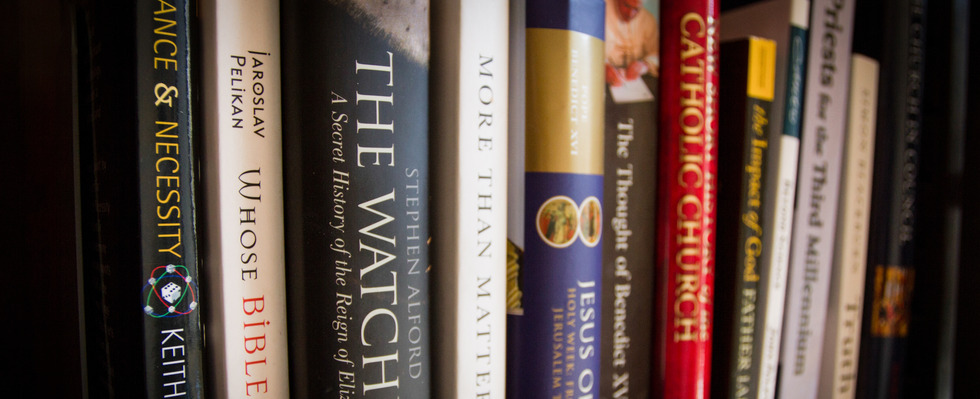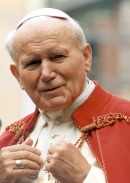Book Review: The Christian revolution that made our world
Article:
01.05.20
The Christian revolution that made our world
Dominion: The making of the Western Mind by Tom Holland, Little, Brown, 594pp, £25.00
reviewed by Richard Whinder
This is an important book: a work by a bestselling author which attempts an objective overview of the history of Christianity and its influence on the Western world. It represents a considerable achievement, and it deserves to be read. Almost everyone will find something new in these pages, while committed Christians will find their faith affirmed – if occasionally challenged as well.
The classical world
In some respects, the author, Tom Holland, could be described as a sort of ‘anti-Gibbon’. Edward Gibbon, the author of The Decline and Fall of the Roman Empire, famously fell so much in love with ancient Rome (or, at least, with an eighteenth century English gentleman’s idea of what ancient Rome might have been like) that he ended up rejecting the Christian faith in which he had been raised. Holland has taken the opposite path. He made his name with scholarly and popular works on ancient history (Rubicon on the Roman republic, Dynasty on the House of Caesar, and several others) and knows the classical world as well as anyone. But whereas Gibbon was entranced by that world, Holland found much there that repulsed him. The brutality and cruelty, the naked worship of power, the contempt for the weak and less fortunate – the more he learned of the ancient world, the more he came to appreciate the Christian ‘revolution’ which brought an end to classical civilisation and ushered in the world we still live in today.
Desolation
It is important to note at this point that Holland is not himself a practising Christian. In his book, he is occasionally sceptical in dealing with the Sacred Scriptures and irreverent in recounting the lives of the Saints. But he is a fair and sympathetic critic. Towards the end of the book, he writes movingly of his godmother, Deborah, who obviously incarnated for him many of the great Christian virtues. Moreover, his own experience has taught him that Christian values are not only precious, and to be cherished, but that the lack of them can lead to desolation. His work as a film-maker took him to Iraq in the wake of the devastation wrought by the so-called Islamic State. There he witnessed what can happen when every vestige of Christianity is absent – men crucified, women enslaved, children massacred, life made barren. He came to value all the more a religion which has dared to claim ‘God is love’.
Many facets of Christianity
The book is structured in a broadly chronological fashion, over three sections: ‘Antiquity’ (the classical world) – ‘Christendom’ (the Middle Ages and Renaissance) – and ‘Modernitas’ (which takes us right up to the present day). Within this over-reaching structure, however, Holland leaps about, bringing in all manner of historical events, striking anecdotes and colourful characters. The Marquis de Sade and Henrich Himmler, St Paul the Apostle and St Catherine of Siena, Cluniac monks and Quakers, St Robert Bellarmine and Nelson Mandela – all these and many more fill the pages and in doing so cast new light on the many facets of Christianity which the author chooses to explore. Occasionally the sheer profusion can be almost bewildering, but Holland is master of his material, and the overall effect is never less than fascinating.
St Augustine and the Beatles
Standing, as he does, outside the formal structures of the faith allows Holland a certain objectivity, but there are of course weaknesses with this approach as well. The book proves conclusively that the Christian faith and Christian values have permeated every aspect of the Western world and exercise a continuing effect. But Holland never offers any criteria by which we might judge genuine developments from corruptions. It is telling that the very first page of his book contains a quotation from St Augustine (‘Love and do what you will’), followed immediately by one from the Beatles (‘Love is all you need’). Now, it may well be true that the Beatles could only write those lyrics because they had grown up in a world steeped in the Christian faith – but can their song really be counted as an expression of Christianity?
Authority or incoherence
More serious questions arise. At one point Holland argues that those who sought to extend marriage to same-sex couples could claim to be motivated by ‘Christian’ values (love and compassion). But a practising Catholic will rightly object that sexual relations outside the marriage of male and female are clearly condemned by the New Testament (a point Holland himself makes
elsewhere) and that same-sex ‘marriage’ is plainly contrary to the Sacramental order established by Jesus Christ. What this book ultimately demonstrates (although the author never makes the case) is that Christianity is desperately in need of a teaching authority – a ‘Magisterium’, in fact – if it is not to collapse into incoherence and self-contradiction.
Human values
One final point. This book’s importance has been generally recognised and it has been widely reviewed in the national press. Often, however, the reviewers have been secularists who (while acknowledging the author’s scholarship) have sought to cast doubt on the central tenet of his book. What Holland claims as ‘Christian’ values, these reviewers say, are in fact simply ‘human’ values – love, compassion, forgiveness, tolerance – these and the like are nothing else than the default setting of human nature. One has to wonder if these reviewers have actually read the book, since Holland demolishes the argument so completely. Few know the classical world better than he, and he has seen just how new and shocking Christianity was in a society whose gods were Jupiter and Mars – and how alien Gospel values still are in societies where Christianity has never taken hold.
True happiness
Yet those secular reviewers do have a valid point – albeit not the one they thought they were making. Granted that the Christian faith was an earth-shattering novelty to the world of late antiquity, it remains the case that the Gospel did find a ready reception there and has done ever since in many different times and places. Down to our own century, cultures as diverse as Europe, America and Africa have all welcomed with enthusiasm the ‘GoodNews’ first preached two thousand years ago on the shores of the Sea of Galilee. What explains this seemingly universal and (as Holland shows) ineradicable appeal? Is it not that the Christian faith reveals the most profound truth about humannature itself? The truth that we are made, each one of us, in the image and likeness of God, and that our only true and lasting happiness will be found in the Gospel of Jesus Christ.
Notes:
Father Richard Whinder is a history graduate and Parish Priest of Holy Ghost Catholic Church, Balham, London.






